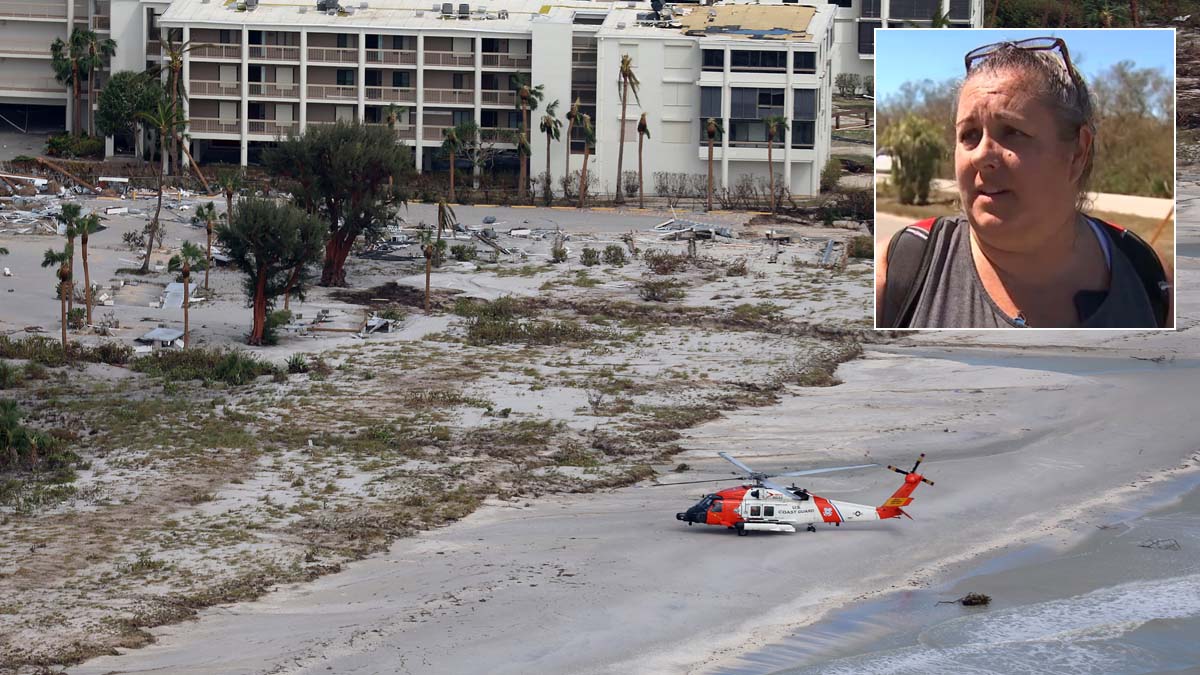Floridians are just now realizing the extent of the damage caused by Hurricane Ian plowing through southwest and central Florida. The recovery will take months, if not years, and much of it will come from tax dollars brought from the federal government now that a "major disaster" declaration has been approved.
The thinking behind major disaster declarations is most times towns, cities, counties, and sometimes even states, can’t foot the cleanup bill by themselves. The federal government draws from taxpayers around the country and has much more money to spend through the Federal Emergency Management Administration.
After a series of damage assessments, Gov. Ron DeSantis requested and President Joe Biden approved a declaration. The declaration unlocks billion in federal dollars.
“We’re here to support them in every way we can,” Biden said.
Get South Florida local news, weather forecasts and entertainment stories to your inbox. Sign up for NBC South Florida newsletters.
Biden said earlier there were 700 FEMA officials on the ground before the storm.
The relationship between the governor and the president has not been good. Earlier this month, DeSantis drew attention from around the country when the state of Florida paid to send around 50 immigrants from Texas to Martha’s Vineyard to thumb a nose at wealthy liberal donors and voters.
During and directly after Ian, DeSantis expressed the two have been working well together.
“We’re committed to restoring the infrastructure as needed. That is not going to be an overnight task. That is something that’s going to require a lot of love and care. And a lot of resources,” he said.
Ian Coverage
The procedures are laid out in the Robert T. Stafford Disaster Relief and Emergency Assistance Act. It requires a preliminary damage assessment to predict the extent and impact of the disaster.
FEMA runs the response and the help released by the disaster declaration comes in three forms. The first is individual assistance for people whose property was damaged or destroyed. This can come in the form of temporary housing, low-interest loans, or grants. The deadline to apply is usually 60 days after the disaster is approved.
The second type is public assistance when towns, cities, counties, and states can apply for reimbursement, usually for 75% of the money they spent on first responders, debris removal, and rebuilding public infrastructure and buildings. These tax dollars will come with inspections and audits, which make sure the money is being used properly.
“Hazard mitigation assistance” is money to local governments and nonprofits to prevent or reduce long-term risks to life.
The DeSantis administration confirmed at a news conference that public assistance has been approved 100% for 30 days in the nine most impacted counties. The original ask was for all 67 counties to be reimbursed for some items up to 60 days after the event. The disaster declaration can be expanded in the future.
“This is when you cash in on all those taxes,” said Xavier Suarez, the former mayor of Miami.
He was the mayor in the early 1990s when Hurricane Andrew struck South Florida. Miami was not directly hit, but the city did have a lot of damage from the high winds and rain.
“The federal government is enormous and lately they send out the money, they parcel out the money like it has no end, particularly in a disaster like this,” Suarez said.
Suarez says cities like Fort Myers, Cape Coral, and others hit don’t have the resources to repair the damage by themselves, so the declaration helps to rebuild not just the roads and bridges, but helps get the businesses and people back up and running.
“It repairs the reputation of the city,” Suarez said.
The better the locals, state, and federal officials get along, the faster and more efficient the cleanup will be, according to Suarez.
“That’s the most important single thing,” Suarez said. “People of good will do turnout in a favorable way and a sort of benevolent way when there’s a disaster approaching. All politicians, in particular when there’s an election approaching, they want to act like they’re collaborative and not antagonistic.”



